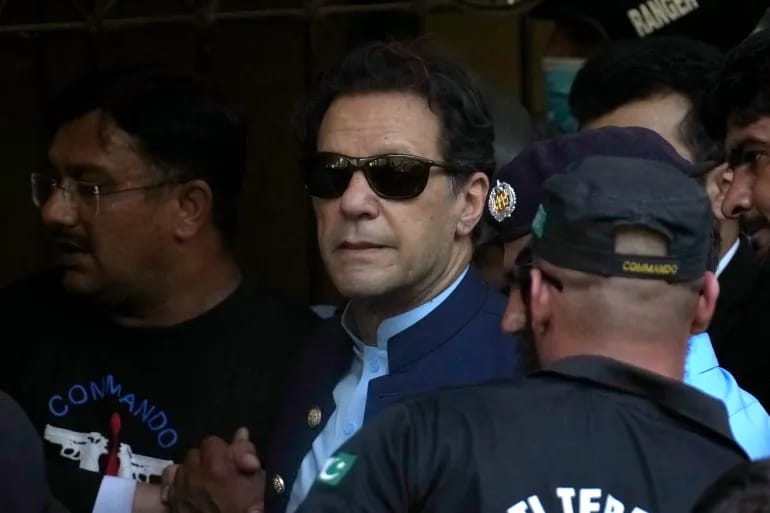In a significant turn of events, former Pakistani Prime Minister Imran Khan has been dealt a decisive blow to his political career as the Election Commission of Pakistan (ECP) announced a five-year ban on his political involvement. This punitive action follows Khan’s recent conviction in a corruption case involving misdeclaration of assets. This verdict has ignited a series of legal maneuvers and political reactions that may shape the future of the nation’s political landscape.
Election Commission Bars Imran Khan from Politics Following Corruption Conviction
Imran Ahmad Khan Niazi, popularly known as Imran Khan, has been disqualified from participating in any political activities for the next five years, according to an order issued by the Election Commission of Pakistan. This decision comes in light of Khan’s conviction in a corruption case over the weekend. The ECP’s ruling asserts that Khan’s disqualification aligns with his criminal conviction and signifies a significant setback for his political ambitions. Consequently, Khan’s constituency is now set to remain vacant.
Confident Challenge: Khan’s Aide Plans to Contest Disqualification in High Court
Expressing a steadfast resolve, Zulfikar Bukhari, an aide to Imran Khan, stated that the political party is well-prepared to challenge the disqualification in the high court. Bukhari’s assertion carries a tone of confidence as he anticipates a reversal of the ECP’s decision. Despite this legal challenge, the looming question remains whether Khan’s conviction and subsequent disqualification can be overturned.
Legal Battle Ahead: Khan’s Appeal Claims Bias and Denial of Due Process
In response to his conviction, Imran Khan’s legal team has swiftly filed an appeal aimed at overturning the verdict. The appeal contends that the conviction was issued “without lawful authority” and argues that bias tainted the proceedings. Moreover, Khan’s legal representation points out that the court’s actions, including the rejection of witnesses for the defense, undermine the principles of due process and fair trial. The appeal’s arguments highlight the complexities of the legal battle that lies ahead.
This recent turn of events has stirred a distinct response compared to Khan’s previous legal entanglements. Despite the muted reaction, the implications of this conviction are far-reaching. Observers attribute this subdued reaction to a concerted effort by the government to suppress opposition, which has led to a “chilling effect” on public discourse and activism.
As the legal battle intensifies, the nation awaits the outcome of Khan’s appeal and the subsequent decisions that will inevitably shape the future of Pakistan’s political landscape. With Khan’s political future hanging in the balance, the nation’s attention remains fixated on the unfolding events that could redefine the course of Pakistani politics.















